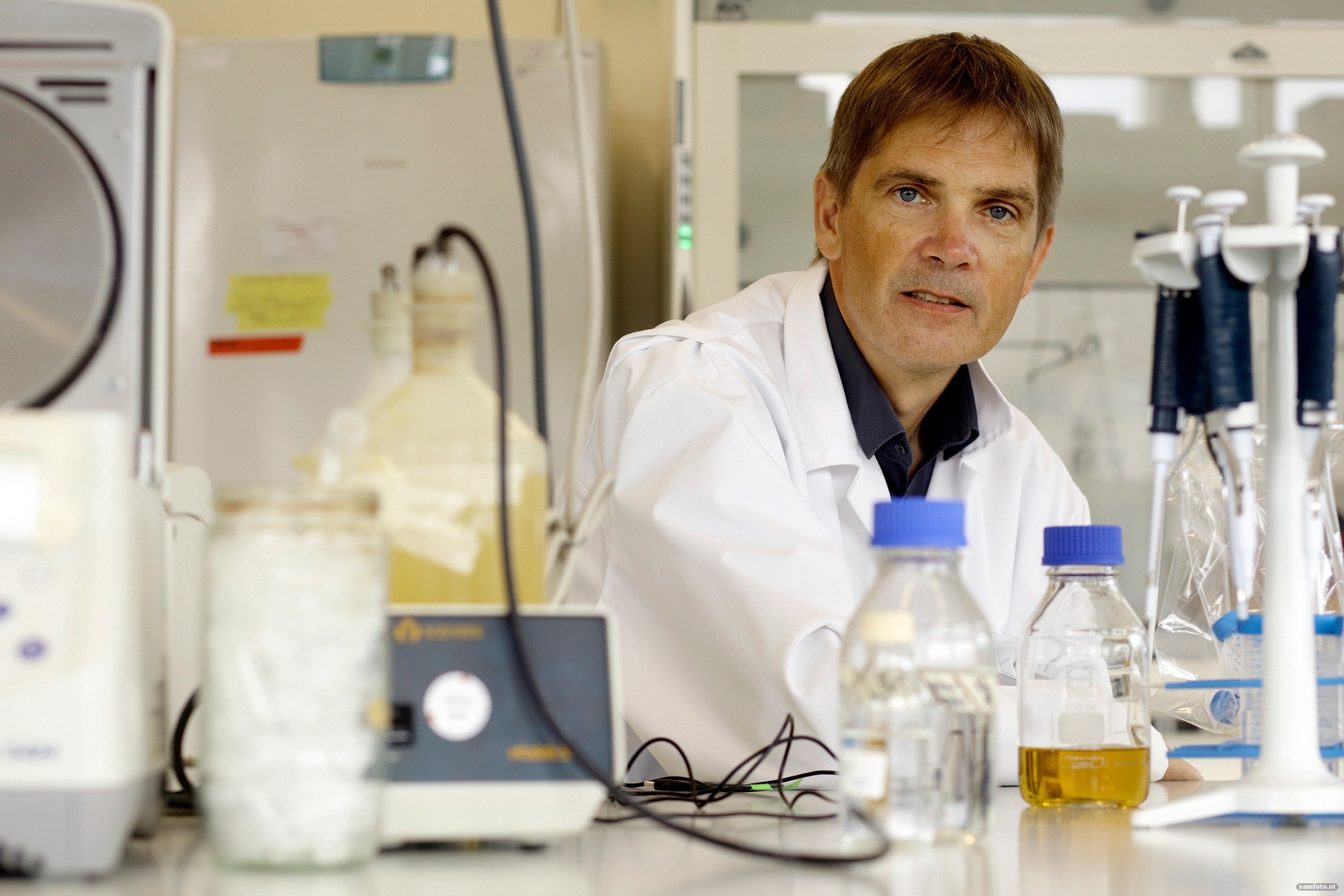
Dr Jack Pronk, Professor of Industrial Biotechnology (Faculty of Applied Sciences), will receive this year’s Novozymes Prize from the Danish Novo Nordisk Foundation, worth DKK 5,000,000 (EUR 627,000).
Pronk is being awarded the Prize for his fundamental scientific work with yeast cells and their use in the industrial production of biofuels from waste streams. Pronk’s work thus prevents competition between biofuel and food production.
Yeast naturally copes well with short sugars and converts them into alcohol, a form of biofuel. Agricultural residues, such as leaves and stems, do not contain accessible simple sugars, but longer pentose sugars instead. The discovery of a fungus in elephant dung that could crack pentose sugars opened the door for a genetically modified yeast that can convert residual streams into alcohol.
Jury Chair Detlef Weigel says of Pronk: “The advances he has made, especially with using yeast, are based on an exceptionally deep knowledge of physiology and metabolism, rooted in rigorous fundamental research. He clearly is a world leader in industrial biotechnology and fermentation science, with a specific focus on developing sustainable bioprocesses that help reduce waste streams and carbon footprints.”
The Novozymes Prize is awarded every year by the Novo Nordisk Foundation, a business organisation that supports scientific, humanitarian and social causes. The projects selected are intended to benefit human life, society or the planet. They are selected from the fields of healthcare, sustainability and biotechnology.
Two years ago, Pronk’s colleague, Professor Mark van Loosdrecht (AS Faculty) also received the Novozymes Prize. And in 2017, it was bestowed on Emmanuelle Charpentier. She co-invented Crispr-Cas, the precision genetic modification instrument. Three years later, in 2020, she and Jennifer Doudna were awarded the Nobel Prize in Chemistry for it.
This year’s Novozymes Prize presentation will take place on 19 April in Bagsværd, at the north-western edge of Copenhagen.
- Read also: Jack Pronk receives the 2024 Novozymes Prize on the TU Delft website


Comments are closed.